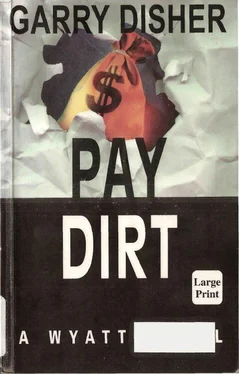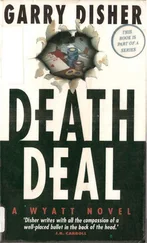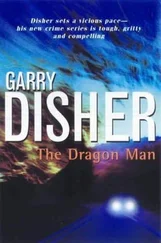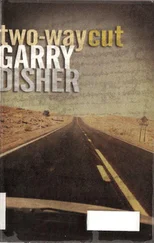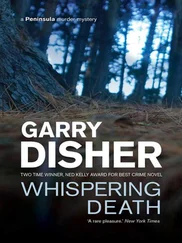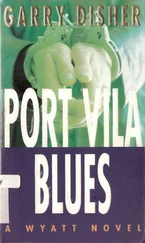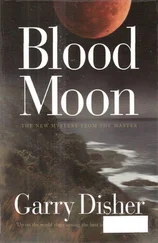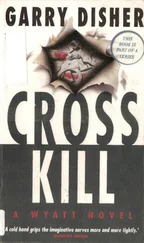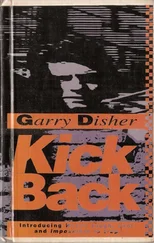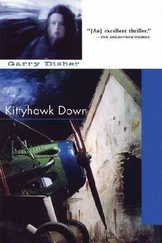Garry Disher - Pay Dirt
Здесь есть возможность читать онлайн «Garry Disher - Pay Dirt» весь текст электронной книги совершенно бесплатно (целиком полную версию без сокращений). В некоторых случаях можно слушать аудио, скачать через торрент в формате fb2 и присутствует краткое содержание. Жанр: Криминальный детектив, на английском языке. Описание произведения, (предисловие) а так же отзывы посетителей доступны на портале библиотеки ЛибКат.
- Название:Pay Dirt
- Автор:
- Жанр:
- Год:неизвестен
- ISBN:нет данных
- Рейтинг книги:3 / 5. Голосов: 1
-
Избранное:Добавить в избранное
- Отзывы:
-
Ваша оценка:
- 60
- 1
- 2
- 3
- 4
- 5
Pay Dirt: краткое содержание, описание и аннотация
Предлагаем к чтению аннотацию, описание, краткое содержание или предисловие (зависит от того, что написал сам автор книги «Pay Dirt»). Если вы не нашли необходимую информацию о книге — напишите в комментариях, мы постараемся отыскать её.
Pay Dirt — читать онлайн бесплатно полную книгу (весь текст) целиком
Ниже представлен текст книги, разбитый по страницам. Система сохранения места последней прочитанной страницы, позволяет с удобством читать онлайн бесплатно книгу «Pay Dirt», без необходимости каждый раз заново искать на чём Вы остановились. Поставьте закладку, и сможете в любой момент перейти на страницу, на которой закончили чтение.
Интервал:
Закладка:
‘That’s how it works, Tub. Five thousand bucks principal costs you five hundred a week interest. The five thousand has to be paid back in a lump sum-like you can’t pay five hundred interest and a hundred off the principal or something. I told you that at the beginning. You shouldn’t have borrowed so much.’
Venables’s face creased fatly in cunning. ‘I could just stop paying.’
‘Ah, come on, Tub. You know what happens if you do that.’
Venables looked gloomily back into his beer glass. He didn’t like Trigg. Trigg was a short, scrawny bloke who tried to compensate for it with his moleskins, Akubra hat and elastic-sided boots, as if he owned a sheep station instead of a car yard. But he knew it wouldn’t do to underrate the man, for Trigg also ran the local SP, loan-sharking and distribution rackets, and with the downturn in the economy he’d become mean and touchy. Hold out on him and he’d send in Happy Whelan, his mechanic, a mindless big thug who’d break your neck as soon as look at you.
‘You drink too much,’ Trigg said. ‘You want to watch it. That and the horses and fast women, Tub, you’ll keel over before you’re fifty. I’ll never get my dough then.’ He poked the fat man. ‘Joke, Tub, for Christ’s sake.’
Venables looked up. ‘All I want is a bit more time. I don’t want fucking Happy knocking on my door.’
Ray Trigg’s bloodless lips stretched in a smile. ‘You’re sounding like a cracked record, old son.’ He looked at his watch. ‘Shouldn’t you get back to work? Your mate’s going to be pissed off. I mean, someone could snatch the payroll.’
‘Never happen,’ Venables said, easing his buttocks off the bar stool.
He stood there, watching Trigg climb down. He felt a dangerous desire to lift the little man under the arms and deposit him on the floor. He hated Trigg’s staved-in face, the neat little rabbit teeth on his lower lip, the elevator heels.
Trigg seemed to catch his thoughts. He looked vicious suddenly. ‘The vans are booked in two weeks from yesterday, am I right?’
Venables nodded. Trigg’s garage in Goyder had the servicing contract for the Steelgard vans.
‘Pay me a thousand then, no less,’ Trigg said.
He turned and crossed the room, nodding at the licensee and the only other customer, a farmer sneaking a quick beer.
‘Something’s going on over the road,’ the licensee said.
Trigg paused. The licensee was wiping glasses and looking out the window at the camp beyond the vine-covered pub verandah.
The farmer turned to look. So did Trigg and Venables. They watched, fascinated. There were white cars and vans everywhere and knots of policemen struggling with angry construction workers.
‘It’s a raid,’ Trigg said.
As they watched, a tall figure loped unnoticed from a corner shed, scaled the fence as if it were nothing, and dropped this side of it. He seemed to land on the run. There was something skilled and resolute in the way he moved.
Venables and Trigg pushed through the old-fashioned swing doors. The road was empty. Shouts and struggling continued inside the camp, but the man had disappeared.
Then they heard a car start up. It entered the road in a controlled skid, fishtailed in the gravel, and sped past them, the engine working hard. It was a big, dusty Ford and they had an impression of intensity and jutting angles in the man behind the wheel.
Trigg, seeming to swell, stamped his little heels. ‘Bastard. He’s taken the LTD.’ He shook his fist at the receding dust cloud. ‘You’re history, pal.’
FIVE
The keys were in the ignition of Trigg’s LTD so Wyatt took that rather than waste time hot-wiring one of the rust buckets in the used-car lot. He headed north from Belcowie, driving the big car punishingly, feeling it bounce and shudder on the torn-up roads. He lost control at one point, spinning around in gravel and slamming against a strainer post. It slowed him down. The side panel had buckled, scraping the front tyre, and he limped into Terowie, a small town on the Broken Hill road. General MacArthur had stopped there once, in 1942; that was all Wyatt knew about the place.
Within five minutes he had stolen another car. He drove south this time, keeping to the main road. In Riverton he stole a third car. The closer he got to Adelaide, the more civilised the landscape seemed to become. The towns were closer together, the farms less wind- and sun-blighted. But he was afraid of roadblocks. At Tarlee he headed across to Nuriootpa and wound through the small towns, wineries and sleepy tourist roads of the Barossa Valley. Then, hoping they’d think he was aiming for Melbourne, he turned south-east and drove to Murray Bridge. He dumped the third car there and caught an Adelaide train, getting off in the Adelaide Hills.
He walked the final ten kilometres to Leah’s house, taking small back roads which were choked on either side with blackberry bushes. Soon his heart stopped hammering. The hills reminded him of the small farm on the Victorian coast which he’d been forced to abandon a few weeks earlier. There were the same orchards and fat white sheep, the same geometric patterns of roads, paddocks, hedges and townships. Only the sea was missing. He breathed in and out, almost enjoying himself.
He let the tension run out of his body and started to think about the chinks he’d identified in the Steelgard operation. Wyatt didn’t take foolish risks. Having a shot at the Belcowie payroll now would be risky but he thought he could make it a calculated risk. He acknowledged the element of frustration in his motives, but frustration wasn’t an emotion he had much time for.
Wyatt was forty years old. Respectable men his age were marking time until their retirement. The hard men his age were dead or in gaol. Wyatt was different. He’d never been burdened by doubt, uncertainty or personal ties. He worked from an emotionless base. He could cut to the essentials of a job and stamp his cold hard style on it.
The essentials of this job were clear-the Steelgard operation was vulnerable, at least on the Belcowie run. The guards were careless and lazy, the delivery itself unvarying and insecure. He’d have to change the how and the where, though. Belcowie and the Brava camp would be in a state of tension for the next few weeks.
A car changed down to first gear behind him and began to labour up the hill. He stepped off the road and into a clump of trees. The vehicle came into view, a faded green Land Rover with dogs and fencing wire in the back.
When it had gone, he continued walking. Ten minutes later he came to the little town where Leah lived. It was called Heindorf and revealed the German influence in its cottagey stone houses, painted wood trims and European trees.
He stood at the end of her street and crouched as if to tie his shoelaces. He couldn’t see anything that shouldn’t be there. The cars were the same ones he’d seen a few weeks ago. No one was about. He stood up, entered the street, and walked to the end. Leah’s house was halfway along. Everything looked all right. He turned the corner. The street backed onto a small pine forest. He climbed through a wire fence, circled behind the first row of trees, and stopped at the rear of Leah’s house. He checked for life in the neighbouring houses. No windows were visible, only fences and backyard fruit trees. It was early evening. Here and there a light was on.
Leah was squatting with a trowel at the edge of a strawberry patch when he cleared her back fence. He landed neatly and crouched, as still as a spooked cat in the twilight. She didn’t seem surprised to see him; she merely stabbed the trowel into the black soil and stood up.
‘It was on the six o’clock news,’ she said, brushing her hands on her jeans.
Читать дальшеИнтервал:
Закладка:
Похожие книги на «Pay Dirt»
Представляем Вашему вниманию похожие книги на «Pay Dirt» списком для выбора. Мы отобрали схожую по названию и смыслу литературу в надежде предоставить читателям больше вариантов отыскать новые, интересные, ещё непрочитанные произведения.
Обсуждение, отзывы о книге «Pay Dirt» и просто собственные мнения читателей. Оставьте ваши комментарии, напишите, что Вы думаете о произведении, его смысле или главных героях. Укажите что конкретно понравилось, а что нет, и почему Вы так считаете.
